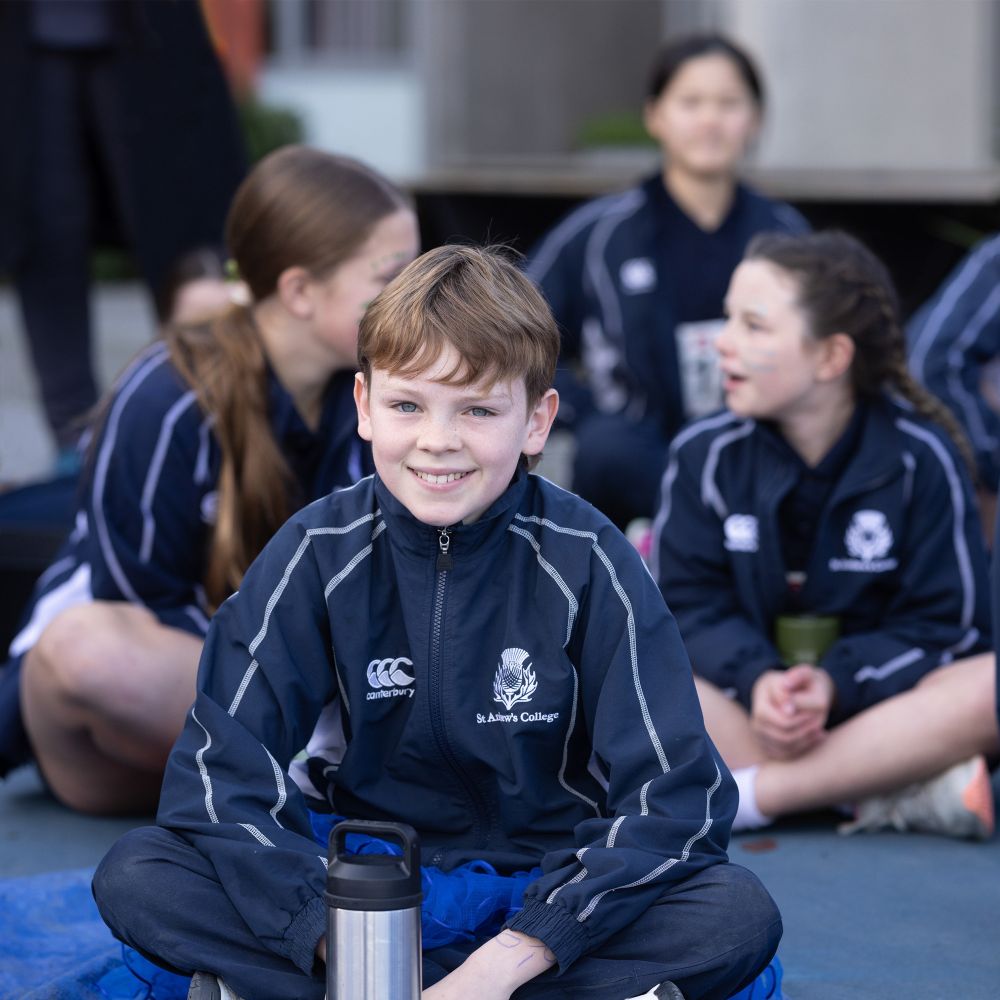Well-being and Pastoral Care
Manaakitanga Toiora
At St Andrew’s College, we not only want our students to flourish in their learning but also to establish a strong foundation for ongoing success in their lives beyond school. Our teachers understand well-being is central to all we do, and we believe developing character is as important as cultivating intellect. We appreciate that learning is a social, emotional and cognitive process, and it is our focus to inspire and engage the whole child.
"At St Andrew’s College our focus is not only academic, sporting and cultural achievement, but also building the character, backbone, and self-respect that will support our Collegians through life’s ups and downs."
Kerry Larby Head of Well-being
Well-being is at the heart of everything
Since 2017, St Andrew’s College has committed to a whole school strategic goal to embrace evidence-based research related to well-being and positive psychology. Staff professional development focuses on integrating research related to building positive relationships, promoting emotional intelligence and resilience, enhancing self-efficacy and fostering motivation, engagement, and purpose.
A well-being focus is integrated into our curricular, co-curricular and pastoral programmes. Our school culture strongly supports student well-being by valuing the importance of positive relationships and celebrating diversity. We aspire for our Collegians to be resilient and confident, able to relate well to others, critical thinkers and informed decision-makers, and contributors to a purpose greater than themselves.

Our well-being models and frameworks
Well-being is defined as feeling good and functioning well (Huppert and So, 2013). At St Andrew’s, students develop their understanding of well-being through the lens of several research-based models and frameworks, including PERMA-V, the VIA Classification of Character and Virtues and our own Health and Well-being programmes.
PERMA-V
The StAC community has developed a shared understanding of well-being as a complex and holistic concept using a modified version of Martin Seligman’s (2011) evidence-based model PERMA-V. PERMA-V comprises of six key pillars that contribute to psychological well-being and are particularly relevant to a school context. These include positive emotions, engagement, relationships, meaning and purpose, accomplishment, and vitality.

VIA Character Strengths
At St Andrew’s College we value and celebrate the diverse character strengths that enable our students to flourish. Our staff understand the Values in Action (VIA) Classification of Character Strengths created by Martin Seligman and Chris Peterson. We use this framework to spot strengths in our students and to celebrate and cultivate diversity in our community.
Under the VIA framework, there are 24 character strengths, and each character strength falls under one of these six broad virtue categories: Wisdom, Courage, Humanity, Justice, Temperance and Transcendence.

"Character strengths are ways of thinking, feeling, and behaving that come naturally and easily to a person and that enable high functioning and performance."
Linley 2006
Health and Well-being programmes
We understand that creating a culture that values well-being is far broader than any specific programme and includes experiential learning and interaction with positive role models. With this in mind, we have developed comprehensive well-being programmes in both the Preparatory School and the Secondary School to best support our students' health and well-being. These lessons build upon our traditional pastoral system.

Well-Being Blog
Read All Our Blog PostsOur Well-being, Guidance and Counselling Team

Kerry Larby
Head of Well-being

Tom Matthews
Head of Guidance

Kate Scott
Psychologist

Steph Sparrow
Guidance Counsellor

Tarina Stephens
Guidance Counsellor

Caroline Sewell
Guidance Counsellor
Our Whakataukī
He waka
eke noa
We are all in this together

Learning at StAC

Beyond The Classroom

Sports

Co-curricular and Cultural Activities


